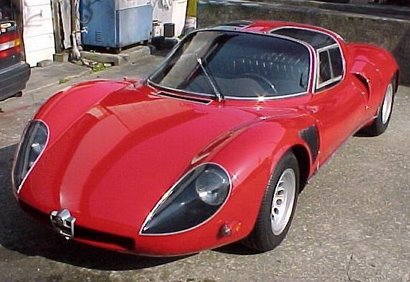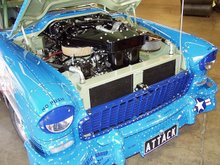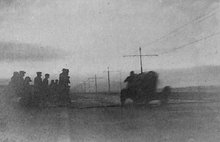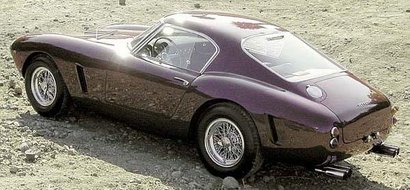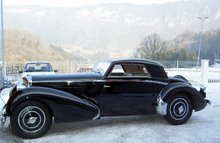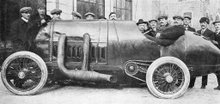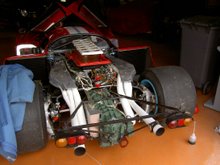My regular readers will know that I like to follow F1, despite the fact that the general public and the media seem to think that it is "Driver Racing" rather than Motor Racing. Despite my recent admiring post here concerning Juan Manuel Fangio, it is or perhaps was, the technical battle that fascinated me, which apart from my generally nostalgic nature, makes study of the 1950s and '60s Grand Prix battles so interesting. The days when, within broad limits, manufacturers would do their best by any means to beat their rivals.
In those days there would be excitement because Team A had an special new engine, Team B had a monocoque chassis, Team C had a new fancy fuel etc.
Nowadays there is little room for manoeuvre, although we have recently had an excellent, though very difficult-to-understand example in the matter of the diffusers, in particular those fitted to Brawn (née Honda), Toyota and Williams cars. As you may have read, these were said by other teams to be outside the regulations and a protest was raised which was thrown out yesterday by the FIA. Here from the
BBC F1 website is a picture of the diffuser fitted to the Williams. As I understand it, the top is supposed to be a straight line; this obviously isn't but is apparently within the regulations. I say good luck to them; they are much cleverer than I!

In the BBC article, there are various links on this subject. which those absorbed in this rather esoteric topic may pursue at their leisure.
I cannot reproduce any illustrations from the Official F1 Website, hardly surprising I suppose, given that it's generous Bernie Ecclestone in charge, so you'll have to look up the following couple of items yourselves.
First the
McLaren diffuserAnd then the
one fitted to the Brawn GP carI have to admit that I would have to study this for months before I could understand the subject.
It is always important to remember that FI designers are at the top of their profession, highly paid and highly esteemed; McLaren for example would have devoted a great deal of time and attention to the design - it would not have been signed-off lightly. Some of the protesting teams have claimed that the so-called "double-decker diffuser" is worth up to half a second a lap - 24 hours in F1 terms!
But there's the rub: amongst the "non-double-decker teams" one has been consistently quick and in some cases quicker, than the "double-deckers". That team is Red Bull-Renault whose car was designed by the famous Adrian Newey. This fact makes some of the whinging from certain other teams seem a little silly - Ferrari in particular springs to mind - Ferrari, whose car and apparently organisation this year are shall we say, less than superb.
Following the overturning of the protest of course, all teams except Brawn, Toyota and Williams will be developing their own "double-deckers". Anyone care to bet against Red Bull this season?
UPDATEHere, quoted from Autosport.com, is Adam Parr, CEO at Williams, talking about the diffuser issue:"Part of the case presented against us related to what we call as the use of multiple vertical transitions. Essentially, you have to have a reference plane, which is like the plank, and 50mm above that you have the step planes. One of the key issues in the case was: when do you have to have a transition between those two?
"Essentially you have to have a vertical transition between the two when the step plane is visible directly above the periphery of the reference plane. Where you don't, it is explicit that you don't have to have one. So one of the key issues in the case was that if you don't have to have one at certain points then by definition you can have many transitions.
No doubt this has helped enormously to clarify the matter eh readers?
UPDATE II
Thanks to "Auntie Beeb" former Technical Director Mike Gascoyne helps to lift some of the fog...
UPDATE III
Saturday, Shanghai: Sebastian Vettel achieves Red Bull's first-ever pole position. Here are Jenson Button's (Brawn GP) comments from Autosport.com:
"It's not quite as good as what I expected," Button told the BBC. "The Red Bulls were quick yesterday, we were watching them in the high speed corners and they were very, very fast.
"So if you at Q2 it looked like they had two or three tenths on us, so yeah they are competitive. And it's not us driving around slowly or having a lot of fuel in the car because it's Q2 and you run with low fuel so they are going to be tough to beat.
"We knew they were competitive but we didn't think quite that competitive."
A bientôt



